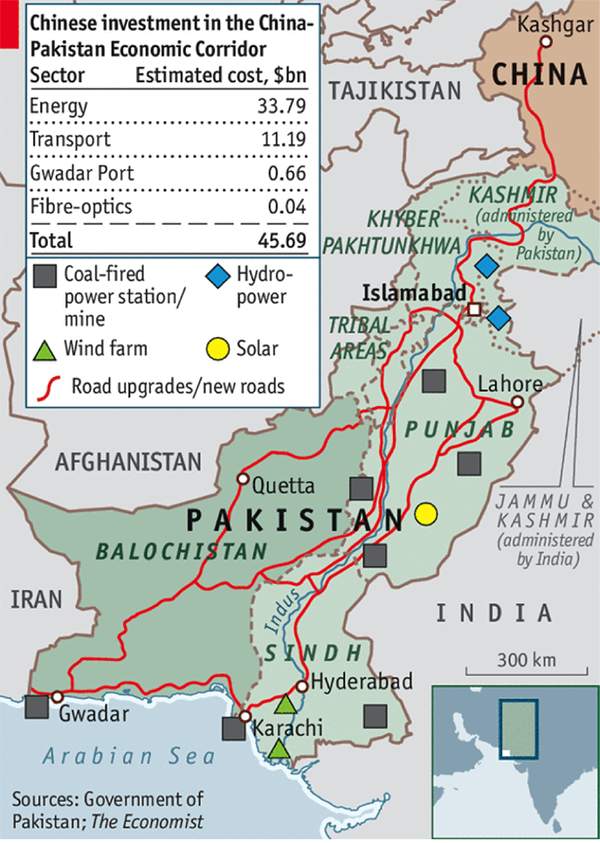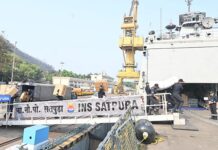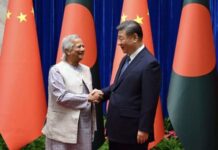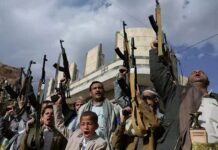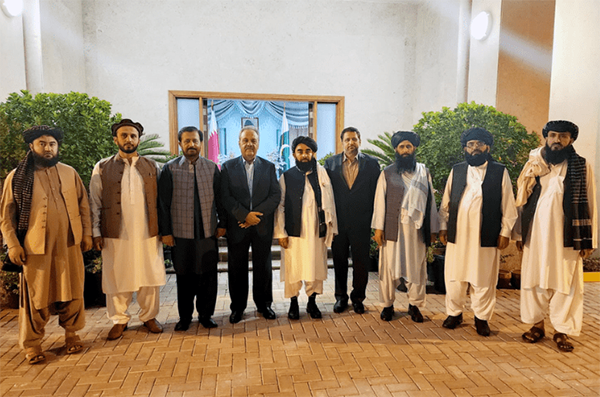
On 1 July 2024, officials from the Afghanistan interim government and Pakistan met in Doha to mitigate the ongoing tensions between the two nations. The relations between the two soured as a result of border skirmishes, cross-border terrorism, the recent refoulement of Afghans and Pakistan’s persistent accusation of the Taliban shielding anti-Pakistani terrorists on its soil, followed by no accountability and reluctance in cooperating with Pakistan. In the past years, Tehreek-e-Taliban Pakistan (TTP) has been waging its war on Pakistan. Given its allegiance to Afghan Taliban, Islamabad expected the Taliban to provide mediation and aid in resolving the TTP-directed threat. However, Pakistan’s expectations dissipated as fast as its assumption to acquire strategic depth in Afghanistan upon the exit of the US and NATO forces.
The meeting between the Afghan Taliban delegation and Pakistani officials commenced over a dinner hosted by the Pakistani mission in Qatar, at the time when the Taliban was attending the UN-sponsored meeting on Afghanistan. After the meeting, both sides described the discussion as a “good meeting.”
According to the dinner’s host, Pakistan’s envoy to Qatar, Muhemmed Aejaz, “Both [sides] remain neighbours and brothers and have a lot in common, including a strong desire for regional peace and security.” Additionally, the Pakistani diplomats were said to have had a “good” meeting with the Taliban-led interim government in Qatar, having discussed Doha-III and hashing out various bilateral and regional issues to deescalate tension and build relations between the two nations amicably.
Zabihullah Mujahid, chief Taliban government spokesman was seen in agreement with his Pakistani counterpart, also referring to the meeting with Pakistani diplomats as “good”.
Crux of the Matter and the Af-Pak Challenges
Since the Taliban take over of Afghanistan, there has been a certain change in the attitude of Taliban. Unlike what Pakistan had expected, the Taliban has moved away from being viewed as a puppet of ISI and Pakistani forces. It has remained vocal on its stance in regards to the Durand Line, discrediting Pakistan’s recognition of what the British Raj left behind as a demarcated area bestowed upon Pakistan as its territory.
Additionally, Pakistan’s request for assistance with the looming TTP threat availed no fruitful result as it is apparent that Taliban has chosen to lean towards its affiliate. Pakistan’s defence minister Khawaja Asif excoriated the Taliban government in Kabul for its inaction against militants along the Pakistan-Afghanistan border.
In an interview with BBC Urdu, Asif stated that Pakistan also offered to grant Rs10 billion to relocate the militants towards the western border. He further reiterated that “It’s correct that we have been carrying out operations in Afghanistan, and we will continue to do so. We won’t serve them with cake and pastries. If attacked, we’ll attack back”.
He placed the stress on the element of surprise which the Pakistani forces hope to achieve in terms of their attack strategy which meant to proceed with the attacks without any prior warning to the Taliban government stating, “This would eliminate the element of surprise. Why should we tell them, ‘get ready, we are coming’?”
In response, the Taliban called the statement “irresponsible”, and forewarned Pakistan of “consequences” in case of cross-border attacks.
Following the deterioration of the Pak-Afghan relations, reports of Pakistani ISI colluding with the ISIS Khorasan (ISK) or Daesh Khorasan emerged. In one such report, a former TTP commander outlined the nature of the relationship between ISK and ISI, which was established through “Dabori Agreement” in the form of a quid pro quo approach. ISK gets the opportunity to infiltrate areas now easily accessible with the aid of ISI, the agreement also provides the necessary funds, logistics and arms required to carry out their assignments while Pakistan is able to achieve the deniability for the actions of ISK. ISI has been notably recognized for its cooperation and aid to Taliban prior to the US exit from Afghanistan in 2021. Due to this precedence, most jihadist groups would seek the opportunity to align with the ISI for consistent donorship and aid.
ISK is Taliban’s rival group, which upon the exit of the Afghan Taliban from the war theatre, has tried to gain complete authority and monopoly on Jihad in the Khorasan area while using Afghanistan as a launching pad for its operations. The Afghan Taliban, upon its return to power has carried out several operations to wipe ISK and its safe havens in Afghanistan. However, the ISK cadre has continued to retain its strength, if not multiply in numbers, by also attracting the soldiers, intelligence officers and cadres from the previous Ghani government, who were prosecuted or who stand the chance of being killed off by the Afghan interim government. ISK, on the other hand, has criticised Taliban for going soft in terms of Jihad and has also managed to successfully gain support amongst various jihadist groups, who also view the new persona of a politically functioning Taliban government as a deviation from Jihad.
The recent reports of ISK in cohorts with the ISI presents an expected obstacle for any sincere reconciliation between Pakistan and Afghanistan. To stretch the matter further, the possibility of the Pakistan military pushing the ISK cadre across the Durand Line under the cover of a retaliatory fire as a result of border skirmishes has certainly aggravated the situation.
Apart from the border skirmishes, the largest refoulement of the Afghans in Pakistan on the Pakistani claim of Afghans leading to the growing terrorism activity in the country, has also added more fuel to the fire of an already simmering Taliban sentiment.
Hence, given that the breakdown in relations between the governments of Afghanistan and Pakistan has proved no fruition for either of them, the so called “good meeting” in Doha has become ends to the means.
In case of Pakistan, China has expressed its discontentment with Pakistan’s efforts at countering terrorism and protecting its citizens against the threats from insurgent groups and militant outfits such as the TTP, the Islamic State-Khorasan (IS-K), and the Balochistan Liberation Army (BLA).
Since majority of Chinese investments are in western Pakistan, especially along the border of Afghanistan, these projects are constantly susceptible to terror threats from many insurgent and militant groups who view the Chinese presence as a contiguous subjugation and marginalization of the local citizens. Pakistan’s approach to retain its ongoing ties with China at the cost of the Baloch, Sindhi, Pashtun and minority interests, with constant crackdowns to hush the grievances, has not attained any brownie points for Pakistan. It was apparent that there was a foreseeable uptick in the militant cadre and the number of terrorist orchestrated activities which Pakistan undermined as minor threats.
Since the BLA claimed Dasu Dam attack in March 2024 on the Chinese citizens in Khyber Pakhtunkhwa (KP), several Chinese firms have suspended their operations until further notice. After the attacks, China demanded of Pakistan to initiate a large-scale counter terrorism operation against the militants, just as it had done in the past in form of operations Zarb-e-Azb and operation Radd-ul-Fassad.
On the Chinese demand, Pakistan’s government announced operation Azm-e-Istehkaam or “Resolve of durable stability” to “combat the menaces of extremism and terrorism in a comprehensive and decisive manner.”
The operation is essential to Pakistan’s interest which entailed to not only placate the Chinese worries to perpetuate the economic and defence aid to Pakistan, but also as an effort to curtail spread of the armed groups and anti-Pakistani insurgents. With Pakistan’s economy in a chaotic milieu, it is blisteringly taking measures to secure both foreign and domestic investments. However, due to the the lack of political stability and the disintegrating security issues, the probability of attracting domestic or foreign investors seems like a difficult task.
UAE-Taliban
It is apparent, the extended invitation to the representatives of Islamic Emirate of Afghanistan is a well contemplated and premeditative move by Pakistan. Prior to Taliban’s visit to Doha, the Afghan delegation paid a visit to the UAE.
The UAE President, Sheikh Mohamed bin Zayed Al-Nahyan met with Taliban’s Interior Minister Sirajuddin Haqqani, who is a designated terrorist with a FBI placed bounty on his head. Even though several nations have not entirely acknowledged the Taliban government, the UAE government has indirectly provided the Taliban with an informal legitimate credibility by extending the invitation to discuss bilateral ties and regional stability. China, too, has tried to maintain relations with the Taliban fearing the spill over of the terrorism activities along its shared borders with Afghanistan and in an effort have kept their embassies open and accredited Taliban diplomats. Given Pakistan’s recent agenda to mollify China and furnish the funds for its large-scale operation Azm-e- Istehkam, the intent for the meeting in Doha was as expected for the success of the operation.
The question remains, to what extent Afghan Taliban would honour the Pakistani wishes to dispose its protected TTP assets in name of counter-terrorism, regardless of the probable compromise that may have been made to further individual interests between the two.




